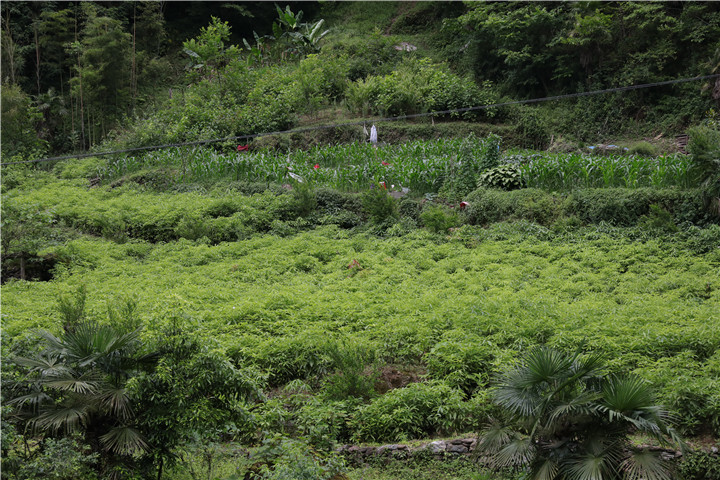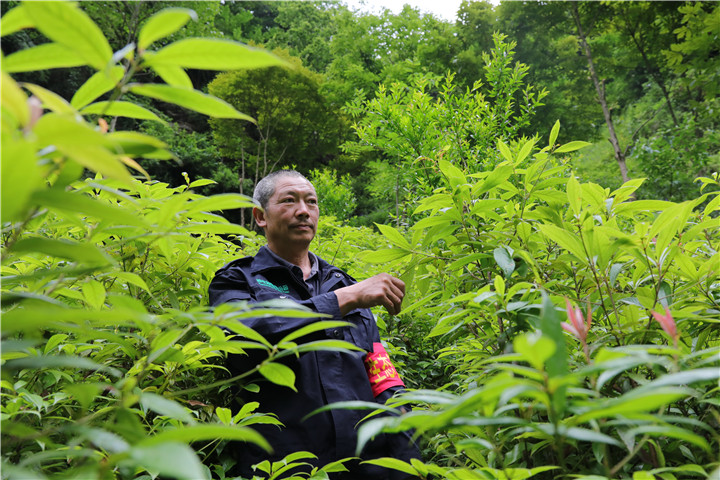Shennongjia engages 1,640 part-time rangers
Updated:2022-08-08 Source:Shennongjia National Park

"Madam, please do not fell the trees while planting vegetables on the mountain. And remember to take precautions against fire.” On June 16, 2021, Cao Yunqing, who lives in Qingtianpao Village in Muyu Town, exhorted Wan Nengxiu, aged 61, not to fell the trees at will and to guard against forest fires when he saw the latter planting vegetables on the mountain.
Cao Yunqing, who is 45 years old this year, has built a 3-storey building to run a B&B hotel in the centralized settlement of the village after moving out of the mountain area in 2017. Besides being a B&B boss, he also has another identity, a part-time ranger.

"I was paid 4,800 yuan annually for this position, whose main tasks include patrolling the mountain and door-to-door publicity." Cao said that he takes part in the mountain patrols once every week, when he gathers together with others at 8:00 AM and go home at 5:00 PM. Cao walks more than 40 kilometers in each patrol, but he never regards it as a tiring job. He works as a monitor of the forest wholeheartedly, and would report to the higher level authority once he finds any sign of environmental destruction.
According to Cao, more and more wild animals are spotted during the patrol with the ecological protection measures being increasingly tight. “Reeves's muntjacs, pheasants, snakes, etc. are very common. Wild boars even go to the road from the forest in groups."
Like Cao, Xie Xingbing in Laojunshan Village of Muyu Town is also a part-time ranger.
"Because there are more mountains than arable lands here, people used to dig wild medical herbs and hunt wild animals to make a living in the past.” Xie said that, after becoming a part-time ranger, he has turned into a protector of the environment from a destroyer of resources in the past. “I would patrol the woods in every two or three days, and that means to guard against destroyers or fire and protect the ecosystem.”
"From 2018 to 2020, the national park offered 1,640 part-time ranger posts in total. Local residents showed great enthusiasm in signing up for the posts." According to Tan Meng, director of the Social Affairs Section of Laojunshan Management Office, Administration of Shennongjia National Park, the Administration would offer training sessions for part-time rangers regularly and pay a salary of 4,800 yuan in cash for each person every year, which allows them to enjoy the ecological dividend from the protection of environment. The balance is thus achieved between the protection of ecosystem and the people's livelihood when the ordinary people become the "forest guardians" voluntarily. (By Zhang Ran and Du Hua)
Copyright Shennongjia National Park
Address:36 Chulin Road, Muyu Town, Shennongjia Forestry District, Hubei Province 鄂ICP备18005077号-3
Address:36 Chulin Road, Muyu Town, Shennongjia Forestry District, Hubei Province 鄂ICP备18005077号-3
Email:2673990569@qq.com
Phone:0719-3453368
Phone:0719-3453368


TOP

